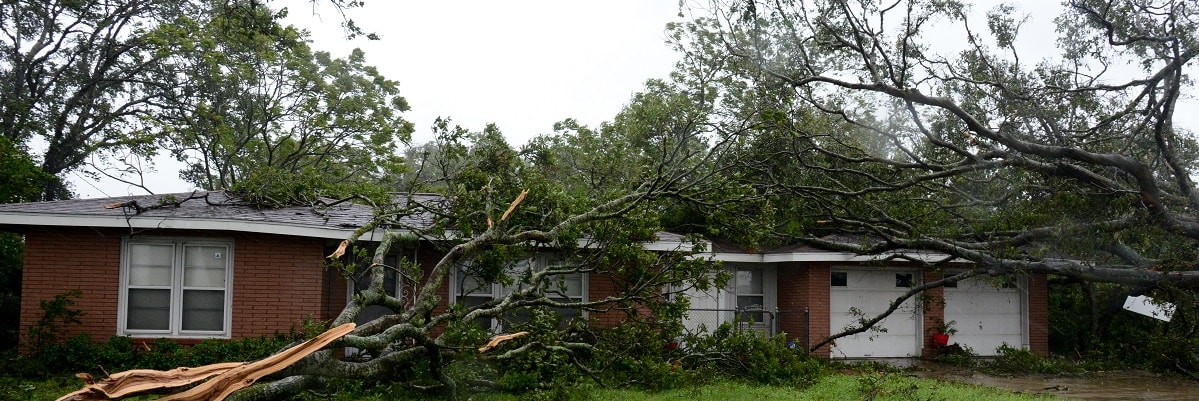Hurricanes

The Atlantic hurricane season runs from June to November. The best way to protect yourself and your family in case of a hurricane is to follow these steps:
- Identify a safe space on lower floors but not the basement; evacuate when instructed by authorities.
- Turn around, don’t drown – avoid flood waters.
- Prepare for secondary risks such as flooding, landslides and damaged buildings.
Before
- The key to staying safe is to prepare and to have an emergency plan in place.
- Listen to local news and weather reports for any potential hurricane watches and warnings in your area.
- Find out if you live in an area where hurricanes could happen and sign up for local alerts.
-
Know the difference between a hurricane warning and a hurricane watch:
- A hurricane warning means a hurricane is already occurring or will occur soon in your area. Evacuate if advised to do so.
- A hurricane watch means a hurricane is possible in your area. Stay alert for more information.
- Trim dead branches and cut down dead trees to reduce the danger of these falling onto your house.
- Secure everything on your property that can be blown around or torn loose.
- Secure windows and doors; move electronics and valuables away from breakable glass.
- If you live on the coast or in a low-lying area near the coast, be ready to move inland or to higher ground. High winds can create large waves, which may become storm surges when they reach the shore.
- Have your emergency kit ready. Families should be prepared to be self-sustaining for at least 3 three days. Kits should include practical items such as drinking water, food, cash, and a portable radio. However, they should also include items that are unique to your own families’ needs. This could include baby items, medical prescriptions, pet food, etc.
- If you have already dipped into your emergency kit and food supply while staying at home, consider safely getting the supplies to replenish it following your local public health authorities’ guidelines for leaving your residence.
- During the COVID-19 pandemic also add hygiene items such as hand sanitizer and non-medical masks to your kit to keep your family safe during an evacuation.
During
- Be prepared to evacuate at a moment’s notice.
- Stay informed by listening to the latest warnings and advisories. Tune in to the radio or local news channels, and/or follow your local news outlet and emergency officials on social media. You can also find information on the Canadian Hurricane Centre website.
- Turn around - don’t drown! Avoid walking and driving through flooded areas.
- Never go out in a boat during a storm. If you are on the water and you see bad weather approaching, head for shore immediately. Do not go down to the water to watch the storm.
- Evacuate if advised by authorities or community leaders. Be careful to avoid flooded roads and washed-out bridges.
- If the eye of the hurricane passes over, there will be a lull in the wind lasting from two or three minutes to half an hour. Stay in a safe place on the main floor but not in the basement during this time. Remember once the eye has passed over, the winds will return from the opposite direction.
After
Continue to take precautions and listen to and follow directions from local authorities.
- Tune in to the radio or local news channels, and/or follow your local news outlet and emergency officials on social media.
- Stay alert for extended rainfall and subsequent flooding even after the hurricane or tropical storm has ended.
- Be prepared for secondary disasters such as flooding, landslides and building damage.
- If you suspect your home is unsafe, do not enter. Rely on the professionals to clear your home for re-entry, if you are unsure.
- Stay away from damaged areas and fallen power lines. Watch out for debris such as sheet metal, glass or other sharp material.
- Do not use water that may have been contaminated. Throw out food that may have been contaminated, including from refrigerator and freezers.
- Wear long pants, a long-sleeved shirt and sturdy shoes when cleaning up.
- Examine your walls, doors, staircases, and windows for damage.
- Take pictures of damage, both of the building and its contents, for insurance claims.
- Check with local authorities on how to properly dispose of damaged items from your home.
- Experiencing a disaster is challenging enough, but during the COVID-19 pandemic it can feel even more difficult. The Red Cross has many resources available to help you navigate these challenging times. You can also find mental and emotional wellbeing resources on the Public Health Agency of Canada, or any provincial/territorial health authority website.
Learn More : Hurricanes: Information & Facts
